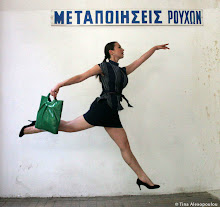
Με βάση έναν πιο σωματικό προσανατολισμό, επηρεασμένο από τις τεχνικές του Κλόουν, του Σλάπστικ και του Physical Theater (Philippe Gaullier,Complicite, Jacques Lecoq) και μέσα από θεατρικόυς αυτοσχεδιασμούς, η ομάδα αποφάσισε την παράσταση να διατρέχει ίσως η βασικότερη των αναγκών ενός ηθοποιού: το να περνά καλά πάνω στη σκηνή, να απολαμβάνει το κάθε δευτερόλεπτο, να αγαπά τα λάθη του και να τα κάνει δημιουργικά δικά του, μέσω παιχνιδιού και των κανόνων που το διέπουν.
Επίσης κρατήσαμε το στοιχείο του παιχνιδιού, τόσο στο θέμα, το στυλ, τη σκηνογραφία και τα κοστούμια ως ένας θίασος «αδαής», που τα θεατρικά του μέσα είναι ακόμα «άγουρα», «χοντροκομμένα», σαν ένα στοιχείο «αφεσης των αμαρτειών» της θεατρικής πράξης. Όπως ο Πουκ στο «Όνειρο...» βγαίνει στο τέλος και απαλύνει τους θεατες λεγοντάς τους «ηταν όλα θέατρο, παιχνίδι, ένα όνειρο θερινής νυκτός!
Παίζοντας λοιπόν, κάναμε μια διαδρομή γεμάτη εκπλήξεις και έτσι γραφτηκέ μια «πονεμένη» ιστορία πάνω σε λευκό χαρτί. Από το μηδέν. Και όλα πήγαν ανάποδα, όπως δεν τα είχαμε φανταστεί. Έτσι λοιπόν γεννήθηκε το έργο μας «The Theater Case», πραγματικά ως υπόθεση και πραγματικά από μια βαλίτσα.
Ο «Κώστας», ο «Μάριο», η «Αλεξάνδρα» και οι «άλλοι»...κρατούν από την ίδια βαλίτσα. Συναντιούνται όταν ο Μάριο απόφασίζει να γυρίσει τον κόσμο, αλλά τελικά ο κόσμος όλος βρίσκεται στα μάτια της Αλεξάνδρας που μένει στην Αθήνα κι έτσι το ταξίδι του σταματάει εκεί. Την Αλεξάνδρα δε, την συναντά εξαιτίας του συγκατοίκου της του Κώστα, ο οποίος περιμάζευει τον Μάριο στο σπίτι, όταν με την αφιξή του στην Αθήνα, του κλέβουν το πορτοφόλι. Έτσι τελικά, μένουν όλοι μαζί κάτω από την ίδια στέγη, γίνονται συγκάτοικοι και η ιστορία ξεκινά...


---------------------------------------
Based to a physical orientated work, influenced by the techniques of Clown, Slapstick and Physical Theatre (Philippe Gaullier, Complicite, Jacques Lecoq) and throughout various theatre improvisations, the company decided that the performance was going to be all run through by the most basic of the necessities of an actor: having fun on the stage, enjoying any single second, to love his mistakes and to make them his own in a creative way, through the game and the rules of it.
Additionally we kept the element of the game, not only in our subject, but also to the general style, the scenography and the costumes like an "ignorant" theatre company, that its way of making theatre is still "immature", "crude", like a hint of "forgiveness" of the theatre act. It's something like Puc in the "Midsummer Night..." that comes out at the end and calms down the audience saying that "everything was theatre, a game, a midsummer night dream!"
So did we and so a route full of surprises followed up, and so a story full of "suffering" was written on a blank, clear white paper. From zero point. And everything went “wrong”, like the way we'd never had imagined. And this way our play was born "The Theater Case", really as a case and really out of a real case.
So, "Costas", "Mario", "Alexandra" and the "others"... have a common origin, this very case. They all meet together when Mario decides to go around the whole world, but the whole world finally is found in the eyes of Alexandra, who lives in Athens and so his travelling stops there. Mario meets Alexandra due to her flatmate Costas, who brings him to their house, while in his arrival Mario gets robbed in a park. And so it happens for them three to stay under the same roof, to become flatmates and the story has began...


Δεν υπάρχουν σχόλια:
Δημοσίευση σχολίου